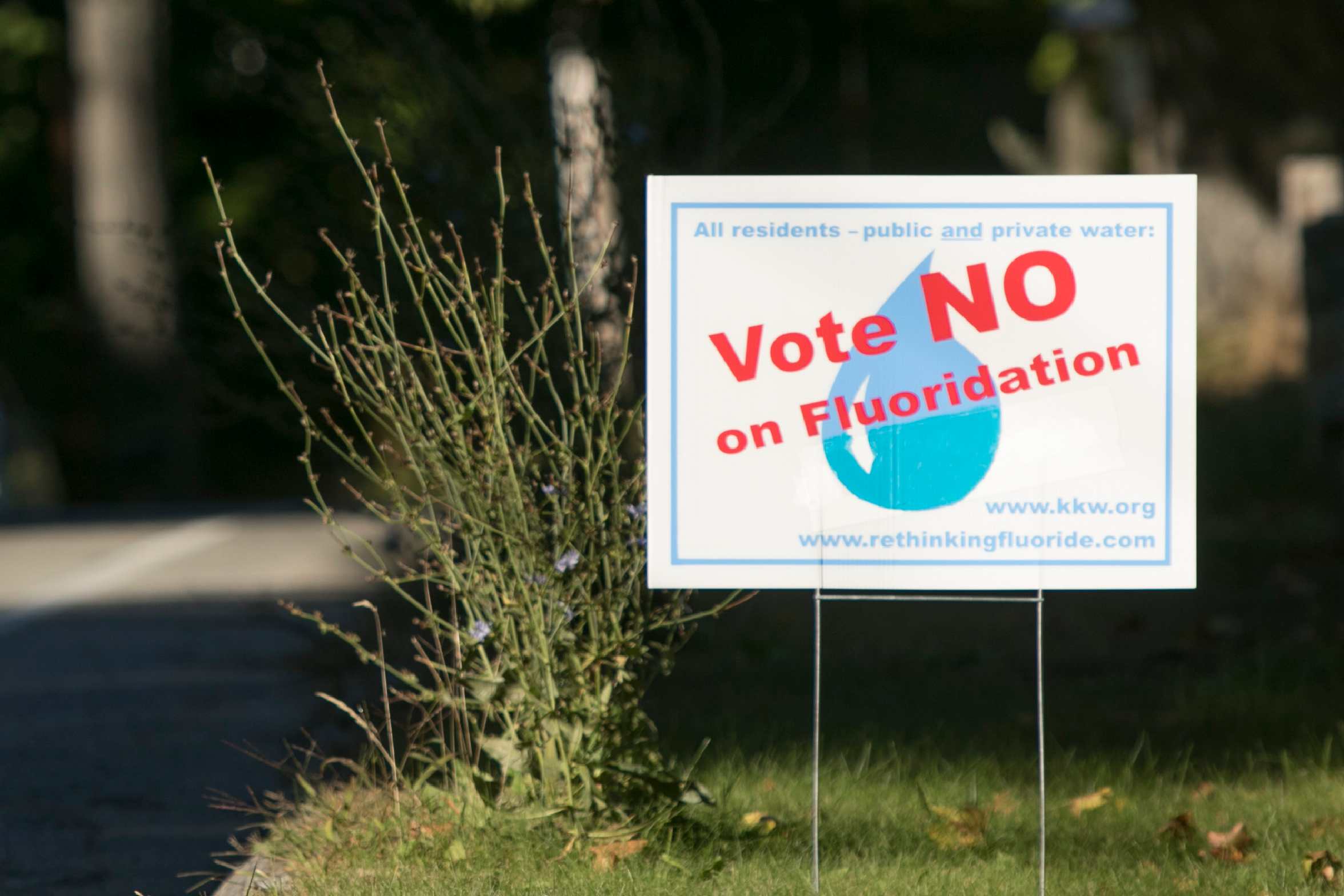…
It is a scenario playing out nationwide. From Oregon to Pennsylvania, hundreds of communities have in recent years either stopped adding fluoride to their water supplies or voted to prevent its addition. Supporters of such bans argue that people should be given the freedom of choice. The broad availability of over-the-counter dental products containing the mineral makes it no longer necessary to add to public water supplies, they say. The Centers for Disease Control and Prevention says that while store-bought products reduce tooth decay, the greatest protection comes when they are used in combination with water fluoridation.
The outcome of an ongoing federal case in California could force the Environmental Protection Agency to create a rule regulating or banning the use of fluoride in drinking water nationwide. In the meantime, the trend is raising alarm bells for public health researchers who worry that, much like vaccines, fluoride may have become a victim of its own success.
The CDC maintains that community water fluoridation is not only safe and effective but also yields significant cost savings in dental treatment. Public health officials say removing fluoride could be particularly harmful to low-income families — for whom drinking water may be the only source of preventive dental care.
“If you have to go out and get care on your own, it’s a whole different ballgame,” said Myron Allukian Jr., a dentist and past president of the American Public Health Association. Millions of people have lived with fluoridated water for years, “and we’ve had no major health problems,” he said. “It’s much easier to prevent a disease than to treat it.”
According to the anti-fluoride group Fluoride Action Network, since 2010, over 240 communities around the world have removed fluoride from their drinking water or decided not to add it.



you know they put fluoride in toothpaste right? if you’re not getting enough from that your water isn’t going to make up the difference.
It demonstrably makes a huge difference, even with people who brush on a regular basis.
Let us suppose that brushing alone gives you maximum benefit you can get from fluoride.
There are people out there who can’t brush their teeth as often as they should, for reasons outside their control. Why should we deprive them of the benefit of fluorinated water? It makes no difference to us. Would you rather live in a world with more tooth problems, or fewer?
Hello! That would be me! I have trigeminal neuralgia.
https://www.mayoclinic.org/diseases-conditions/trigeminal-neuralgia/symptoms-causes/syc-20353344
As the image should illustrate, brushing my teeth really really hurts, so I can’t do it anywhere near as often as I’d like to.
The article addresses this. They explicitly state that this decision will disproportionately effect poorer people whose only preventative care may be drinking water. In order for this to be as effective as having fluoride in the water supply, you’d have to find some way to get said toothpaste to these poorer people AND ensure compliance. So, definitely not as easy as just removing the fluoride and letting toothpaste handle it.
If they are so poor that they can’t afford toothpaste, and their only option for obtaining fluoride is by drinking tap water, their teeth are going to be absolutely fucked no matter what we put in that tap water. So this is not a good reason.
Their teeth will be less fucked with fluorinated water.
We should just buy them toothpaste and toothbrushes instead, that would be far more effective to help. Don’t buy fluoride to put in the drinking water that nobody needs to drink, and invest that money in toothpaste and toothbrushes to be mailed out for free or whatever.
Poverty isn’t just money. It’s education and time as well. A less-well-off person will be less educated, and thus they won’t really know or understand why consistently brushing is important. People who are struggling to keep afloat also tend to have multiple jobs, or other responsibilities. Brush time seems insignificant until you realize that some people’s average day is: wake up after 2 or 3 hours sleep, eat a piece of bread if lucky, go to first job, work 4-8 hours, go to second job, go home, go to bed, do it again. There’s no time and energy in there for such a simple maintenance item that is, strictly speaking, not required for life.
Plus disabled people, plus people in an abusive relationship, plus depressed people, plus people who are just plain gross. Who wouldn’t want to live in a world where all these people have better teeth?
As a child you can’t brush your adult teeth that haven’t grown in yet, but you can drink fluoridated water and have it deposit in your adult teeth as they are growing making them stronger than they otherwise would have been for the rest of your life.
There’s other ways to do that too. Kids here (Netherlands) get fluoride treatments from a young age (after their adult teeth have come through, I think) up to 18. It’s not particularly enjoyable but like you said, it benefits you for the rest of your life.
Free/affordable healthcare means checkups at the dentist about every 6 months. After the checkup you get these two small jaw shaped containers (for upper and lower sides) filled with a fluoride paste and you just sit there for a few minutes drooling into a metal bowl. There’s even flavours but they’re all gross, haha. Apparently that’s on purpose so you don’t swallow too much.
Anyway, this whole fluoride in the water thing appears to be a very US based discussion, so I’ve got no horse in this race. I just wish the US had better, more affordable healthcare to begin with.
If you’re poor and American, you essentially can’t afford a dentist. This is better than nothing.
Excuse me! The fluoride treatment flavours ar wonderful! Best part of going to the dentist as a kid!
CDC
Do you drink your toothpaste?